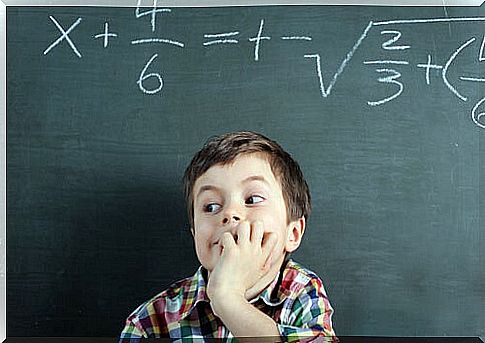Is It Hard For You To Learn Math? (Dyscalculia)

It is lovely to read Albert Einstein when he says that ” l
Dyscalculia, the problem to establish a relationship with mathematics

Causes of dyscalculia
- It can occur in people with visual perception deficits.
- It appears in individuals who have orientation problems.
- It also occurs in people who do not perceive bodies, figures, lengths, sizes, distances, etc.
Can the condition be treated?
Fortunately, dyscalculia can be a welcome target for intervention. For example, scientists at the Institute of Cognitive Neuroscience at the University of London are making excellent progress. Thus, there are already programs that provide sufficient resources to the student so that this problem does not pose an obstacle when it comes to understanding mathematical logic. On a cognitive level, it works, for example *:
- The gradual replacement of direct manipulation by graphic representations, and these by certain symbols (numbers, signs, etc.).
- Increase in vocabulary, especially that related to mathematics, emphasis must be placed on written manifestations, on learning and using mathematical signs, on the written arrangement of operations, etc.
- Training of attention (especially sustained attention) and memory (working memory, immediate memory, etc.) as basic functions.
Nowadays, different softwares have also been developed that help students to master basic concepts related to numbers. Once this phase is over, they begin to try to understand the symbols.

Symptoms of the disorder
The bad thing about this disorder is not that the person never gets to solve an equation in a formal way and with abstract variables. The negative part is noticeable above all in the difficulty to perform simple calculations, such as estimating a discount or the return of a purchase, or when they are unable to understand a simple traffic sign or orient themselves in the middle of a city. That is why it is essential that we pay attention to the symptoms. People with dyscalculia:
- They have difficulties learning numbers and confusion with signs of adding, multiplying, dividing …
- They have a hard time doing a mental calculation or locating an address. At this point, working memory and its operability is very important.
- They can understand geometry or any other science, but when calculation is necessary they get stuck.
- They don’t understand abstract concepts like time.
- It is difficult for them to memorize concepts, formulas, mathematical rules …
- Keeping the score during a game or event is very difficult for them.
Despite the advances, it is not known which genes are involved in the development of the disorder. However, it has been proven that the difficulty in learning mathematics is usually hereditary in most cases. Thus, family information can be vital to detect it at an early age and achieve better results with the intervention.
Source: psychodiagnosis









